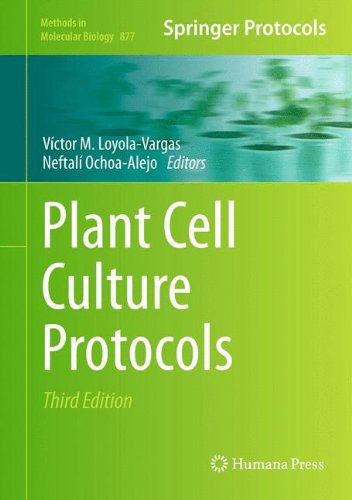

Most ebook files are in PDF format, so you can easily read them using various software such as Foxit Reader or directly on the Google Chrome browser.
Some ebook files are released by publishers in other formats such as .awz, .mobi, .epub, .fb2, etc. You may need to install specific software to read these formats on mobile/PC, such as Calibre.
Please read the tutorial at this link: https://ebookbell.com/faq
We offer FREE conversion to the popular formats you request; however, this may take some time. Therefore, right after payment, please email us, and we will try to provide the service as quickly as possible.
For some exceptional file formats or broken links (if any), please refrain from opening any disputes. Instead, email us first, and we will try to assist within a maximum of 6 hours.
EbookBell Team

4.4
32 reviewsCell culture methodologies have become standard procedures in most plant laboratories. Currently, facilities for in vitro cell cultures are found in practically every plant biology laboratory, serving different purposes since tissue culture has turned into a basic asset for modern biotechnology, from the fundamental biochemical aspects to the massive propagation of selected individuals. “Plant Cell Culture Protocols, Third Edition is divided into five convenient sections that cover topics from general methodologies, such as culture induction, growth and viability evaluation, statistical analysis and contamination control, to highly specialized techniques, such as clonal propagation, haploid production, somatic embryogenesis, organelle transformation. The volume concludes with a section on the laborious process of measuring the epigenetics changes in tissue cultures.”Written in the successful Methods in Molecular Biology™ series format, chapters include introductions to their respective topics, lists of the necessary materials and reagents, step-by-step, readily reproducible protocols, and notes on troubleshooting and avoiding known pitfalls.
Authoritative and easily accessible, Plant Cell Culture Protocols, Third Edition seeks to serve both professionals and novices with its guide to the most common and applicable techniques and methods for plant tissue and cell culture.